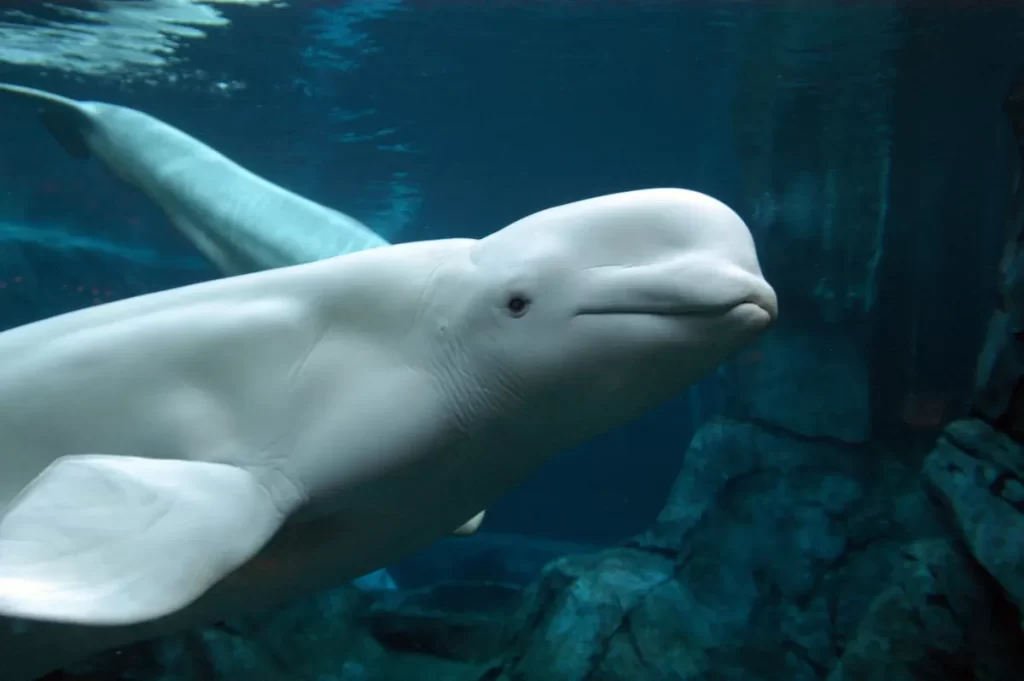A beluga whale that made headlines in 2019 for wearing a harness in Norway has reemerged off the coast of Sweden, fueling speculation about its origins and purpose. Initially discovered in Norway’s Finnmark region, the whale had spent over three years gradually making its way down the Norwegian coastline before recently picking up speed and reaching Sweden.
Marine biologist Sebastian Strand from the OneWhale organization expressed curiosity about the sudden acceleration, as the whale seemed to be moving away from its natural environment at a rapid pace. Strand suggested that the increased speed could be driven by hormonal changes prompting the search for a mate or the longing for companionship since belugas are highly social creatures.
The whale, who is thought to be 13 to 14 years old, is currently in a hormonally active age range. The Svalbard archipelago, situated between northern Norway and the North Pole, is home to the nearest beluga population. The whale, however, has not come into contact with any other belugas since landing in Norway in 2019.
Dubbed Hvaldimir by Norwegians, a pun combining the Norwegian word for whale, “hval,” with a nod to its alleged Russian connection, the whale was found wearing a harness with the words “Equipment St Petersburg” on the clasps. Speculation arose that the whale may have escaped from an enclosure and possibly been trained by the Russian navy due to its apparent familiarity with humans.
The Russian government never officially responded to the Norwegian allegations of espionage. The Barents Sea, where the whale was initially discovered, is a strategically significant area for monitoring submarine movements by both Western and Russian forces. Additionally, it serves as a gateway to the Northern Sea Route, which offers a shorter maritime journey between the Atlantic and Pacific oceans.
While the whale’s health appeared to be robust in recent years, as it was observed foraging under Norwegian salmon farms, concerns have emerged about its ability to find food in Sweden. The OneWhale organization has already noticed some weight loss and is monitoring the situation closely.
Beluga whales typically inhabit the icy waters around Greenland, northern Norway, and Russia. They can reach lengths of about six meters (20 feet) and have a lifespan of 40 to 60 years. The mystery surrounding the beluga whale’s journey continues, leaving scientists and onlookers fascinated by its unexpected and enigmatic movements.

